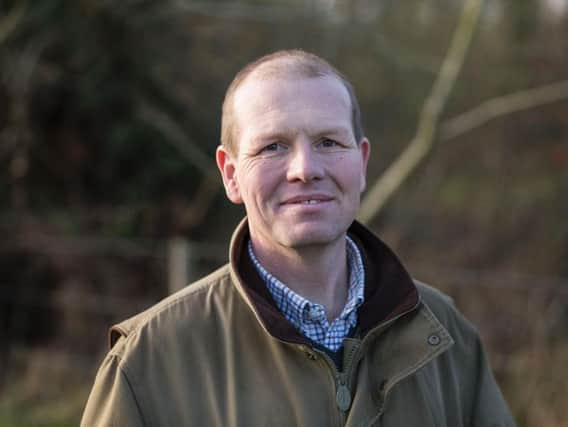Nature friendly farming could be helped by new payments for 'public goods' as it will encourage more hedgerows and trees


Chairman Martin Lines said a move from EU farming subsidies to paying farmers for ‘public goods’ could mean woodier landscapes which is good for wildlife and the climate.
Mr Lines claimed that as well as providing habitat and storing carbon, developing large hedgerows alongside trees and copses on farmland could deliver benefits such as sheltering and feeding livestock as well as curbing rural crime.
Advertisement
Hide AdAdvertisement
Hide AdThe Government’s advisory Committee on Climate Change will this week publish in-depth advice on how land should be used to help meet its net zero targets by 2050. In a previous study, the committee said hedges and trees on farms would play a role in cutting emissions.
The Government recently introduced its Agriculture Bill which will govern farming in England after Brexit, shifting away from the current EU subsidy system to one which rewards farmers for providing public goods such as carbon storage.
Yorkshire Wildlife Trust reveals thousands has been raised to help preserve Yorkshire's peatlandsAgriculture Bill puts fresh focus on the relationship between farming and the environmentMr Lines said a flexible system with financial support and advice for farmers to create bigger, wilder hedgerows, could provide more shelter and food such as berries for wildlife as well as store more carbon in plant growth.
Hedges can also help reduce common rural problems, he said, referencing his own farm in Cambridgeshire where restoring hedgerows has helped keep illegal hare coursing and flytipping off his land.
Advertisement
Hide AdAdvertisement
Hide AdHe said: “I’m really excited at this idea of a bushier, woodier, wilder landscape, connecting things, with watercourses, with hedgerows, some real wild areas and not-so-wild areas. Hedges have a key role to play in that.
“I think it’s really exciting for biodiversity benefit and carbon benefit and a better, healthier- looking landscape.”
Support to manage hedges would reward landowners with smaller-scale fields and encourage large-scale arable farmers to put hedges back which could be farmed round, Mr Lines claimed.
The National Farmers’ Union has set out ambitions for the agricultural sector to hit net-zero emissions by 2040 and said enhancing hedgerows could save up to 500,000 tonnes of carbon dioxide a year.